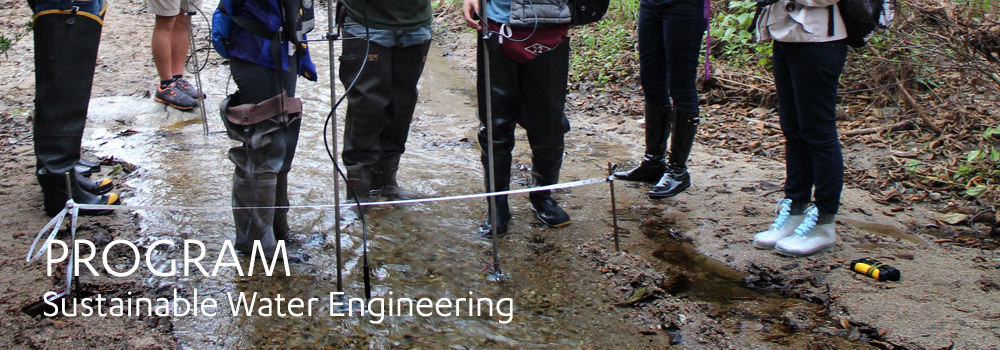
Engineers are needed worldwide to find novel solutions providing access to clean water.
Sustainable Water Engineering
UPON APPLYING, PLEASE SELECT “ENGINEERING – ONLINE” AS THE MAJOR. THEREAFTER, YOU WILL BE ABLE TO SELECT ENVIRONMENTAL AND WATER RESOURCES AS A SPECIALIZATION.
Degree: Master of Science in Engineering with Certificate of Specialization in Sustainable Water Engineering
Area Director: Professor Jennifer Jay – jjay@seas.ucla.edu
Description:
Plentiful high quality water is fundamental for society. However, drought, climate change, contamination and growing populations pose challenges for water sustainability. Engineers are needed worldwide to find novel solutions providing access to clean water. Key elements in this degree program are surface and groundwater processes, hydroclimatology, watershed response to disturbance, remote sensing for hydrologic applications, membrane separation in aqueous systems, aquatic chemistry, environmental microbiology, and the chemical fate, geochemical modeling, and transport of contaminants in the environment.
Important Notes:
This area currently has (7) core courses available. The MS degree requires (9) courses total (36 units). This means that students are required to take (2) electives (max 3) outside of the C&EE department. Electives can be ANY course that is offered through the MSOL program.
As a part-time program, there is (1) core course offered per term, with the exception of the summer session. Students may take the summer off or opt to take an elective course.
*Data accounts for students in the following programs: Data Science Engineering, Engineering Management, Mechanics of Structures, Sustainable Water Engineering, and Systems Engineering
Course Requirements:
At least nine courses are required, of which at least five must be graduate courses at the 200 level (excluding ENGR 299 project course), and meet comprehensive requirement.
Take (6) core courses from the list below + up to (3) electives:
- C&EE 154 – Chemical Fate and Transport
- C&EE 250A – Surface Hydrology
- C&EE 254A – Aquatic Chemistry
- C&EE 255A – Physical and Chemical Processes for Water and Wastewater Treatment
- C&EE 259A – Green Infrastructure
- C&EE 266 – Environmental Biotechnology
- C&EE 251C – Remote Sensing with Hydrological Applications
- C&EE 250B – Groundwater Hydrology (tentative)
- C&EE 250C – Hydro Climatology (tentative)
NOTE: The list of recommended electives has been removed as of 05/2023. Theses courses are not yet available online as originally anticipated. If you need suggestions for electives, please reach out to msengrol@seas.ucla.edu or select any course offered by MSOL.
Please visit the Registrar’s webpage for Civil & Environmental Engineering course descriptions.
COMPREHENSIVE EXAM REQUIREMENT
Students can meet the Comprehensive Exam Requirement by choosing ONE option below:
As long as you have met the requirements above, the remaining courses may be selected from other Engineering departments. No approval is necessary.
Option 1:
Take and Pass ENGR 299 Capstone Project course.
Option 2:
Take and pass three written exams for three different graduate level courses within the student’s area of specialization. The written exams are held concurrently with the final exam of the graduate level courses. Students may select which exams they would like to count towards the Comprehensive Exam requirement.
Electives:
As long as you have met the requirements above, the remaining courses may be selected from other Engineering departments. No approval is necessary. Please note: Students may not apply electives towards earning a certificate. Certificate programs are intended for non-matriculating students and are categorized as separate programs.
Thesis Plan:
NONE
Time-to-Degree:
Students are expected to complete the degree within two academic years and one quarter, including two summer sessions. The maximum time allowed in this program is three academic years (nine quarters), excluding summer sessions.
